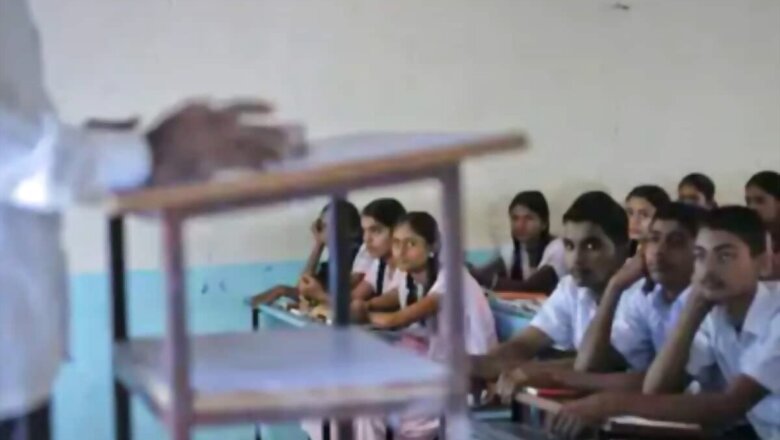
views
Community service will now be a credited subject in Rajasthan to instill values like ‘Joy of Giving’ in students in higher education institutes who will be familiarised with community service as part of their syllabus in this session.
The Ashok Gehlot government is in the process to introduce ‘Aanandam’ scheme to inspire college students to contribute towards society and earn academic credits in return. A first in the country, the state government’s initiative has already received acceptance from most universities in the state.
Inspired from the Gandhian approach towards wholesome development of citizens, ‘Aanandam’ would allow the students to decide the mode of service they wish to deliver, be it cleaning the campus or associating with some non-governmental organisation. Moreover, it would not add to the academic burden, any financial burden on the state exchequer, or involve any classroom lectures. The teacher’s role in the process will be limited to guidance and not require physical evaluation.
It is for the first time that any state has introduced community service in the college curriculum. In the process of contributing to society, the students develop a better understanding of the social and administrative set up around them. They will have a chance to explore and get in touch with people already working in professions of their choice. It will be an opportunity to develop interpersonal and communication skills. Also, their good deeds would reflect in their resumes, and this would especially be of value for those applying for admission in universities abroad where community outreach has been a part and practice of the academic process of several colleges.
Secretary, Higher and Technical Education, Shuchi Sharma, who played a key role in introducing ‘Aanandam’ said, “It has been felt for long that our education system is not generating happy youth. There is a need for holistic education. Therefore, ‘Aanandam’ is being introduced as a mandatory credited subject in the curriculums of Higher and Technical Education. It will nurture the leadership qualities among our youth by connecting them with the community and its problems. It will make them more understanding and empathetic. It will reorient the purpose of education in the long run towards real happiness.”
The course demands students to engage in acts of goodness like caring, sharing, giving time and energy, take up a group project for serving the local community. While the students are directed to do an individual act of goodness each day and record this in a dedicated diary/register, they are also required to take up one community service project per semester. This will earn two credits for a project in each semester or 50 marks for each project to be completed in 4 months. The mentors who are none other than faculty members will maintain a register to record which will be submitted to the school principal every day.
The suggestive list of the project will include:
1. Literacy programmes
2. Livelihood projects
3. Time giving activities to adopted communities like building awareness for government programmes and also holding sessions for yoga, meditation or physical exercises.
4. Activities for the restoration of art and culture.
5. Activities towards environmental awareness and appreciating cultural diversities.
6. Activities towards first-aid training and animal care.
7. Project activities like helping plant a community garden, taking up local social problems and devising solutions, attending to problems of the elderly.
Mentors will review the project on a monthly basis and submit the report to the nodal officer of the college to compile and share with higher authorities on Google spreadsheets. Separate Project Assessment Committees (PACs) will be constituted at university and state levels to assess the project report.
The principal will choose the best project report taking into consideration the number of beneficiaries and impact on society and will be uploaded on the Higher and Technical Education website and college page. State-level awards apart from certificate/letter of appreciation will also be given by Director, College Education/Department of Higher and Technical Education after assessment from State Level Project Assessment Committees.
‘Aanandam’ is an exercise to build the bedrock of core values of community participation in students.




















Comments
0 comment